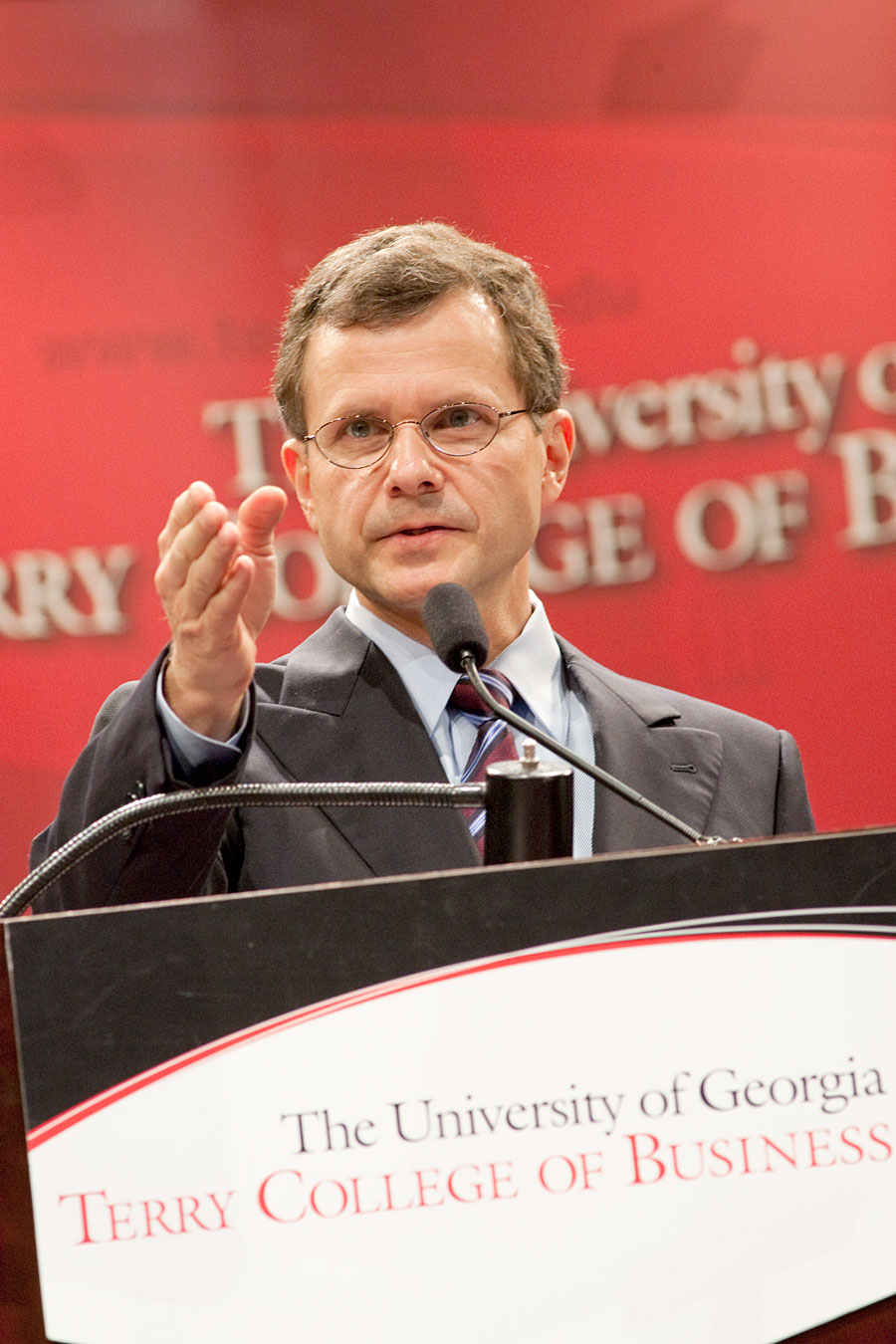Eighteen months of recession came to a statistical end in June, but what has followed since then hasn’t felt much like a recovery, said Robert T. Sumichrast, dean of the Terry College of Business, at the 27th annual Georgia Economic Outlook luncheon held Dec. 15 in Atlanta and hosted by UGA’s Terry College of Business.
“We still feel awful,” he said in the 2010 forecast of the Selig Center for Economic Growth. “Employment is declining. Non-residential property is plunging. Consumer spending is restrained. Capital needs reallocation. And on top of all that, the banking system is not completely fixed, with too many banks still holding onto assets that are clearly distressed.
“Despite this list of concerns,” he said, “our forecast is for the recovery to be sustained.”
Even though the economy has bottomed out and is not expected to dip a second time into recessionary levels, it will be the most subdued bounceback in consumer spending since World War II.
“A slow rebound after a deep recession like this is unusual,” Sumichrast said, “but this upturn will be different. Our recovery will be slow and bumpy. You can expect Georgia’s economy to underperform the national economy until real estate and construction stabilize sometime in 2011.”
Georgia will continue to suffer from its exposure to the real estate downturn, which was the epicenter of this recession.
The Selig Center forecast anticipates that consumer spending in Georgia will increase only about 1 percent in 2010. As the recession deepened and job losses mounted, households shifted from spending to saving and the higher savings rates have become another drag on the recovery.
“Only in 2011 will Georgia’s overall construction industry begin to make significant contributions to the state’s economic growth,” Sumichrast said. “Until that happens, Georgia’s economic recovery will continue to proceed more slowly than the nation’s.”


